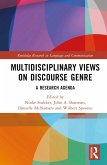In "Language: An Introduction to the Study of Speech," Edward Sapir presents a comprehensive examination of language as a fundamental aspect of human experience. This seminal work explores the intricate relationship between language and culture, delving into the complex structures that underlie speech. Sapir employs a clear, engaging prose style that is both accessible and insightful, making complex linguistic concepts understandable to a broad audience while positioning the book within the early 20th-century intellectual milieu that sought to bridge the gaps between anthropology, psychology, and linguistics. The text not only analyzes the mechanics of language but also contemplates its impact on thought and social interaction, demonstrating the profound interconnectedness of these elements. Edward Sapir was a pioneering linguist and anthropologist whose extensive studies on Native American languages profoundly influenced his understanding of language's role in society. His diverse academic background, interweaving linguistics, cultural anthropological insights, and a keen interest in psychology, informed his work and perspective on language as more than mere communication-it is a reflection of human cognition and culture. Sapir's experiences in studying various languages and cultures provided the foundation for his revolutionary ideas regarding linguistic relativity and cultural expression. "Language: An Introduction to the Study of Speech" is essential reading for anyone interested in the dynamics of language and its centrality in human life. It invites readers to reconsider their perceptions of language, urging them to appreciate its intricate ties to culture and cognition. This book is indispensable for students, scholars, and enthusiasts of linguistics and anthropology alike, offering profound insights that remain relevant in today's discourse on communication and identity.
Dieser Download kann aus rechtlichen Gründen nur mit Rechnungsadresse in A, B, BG, CY, CZ, D, DK, EW, E, FIN, F, GR, HR, H, IRL, I, LT, L, LR, M, NL, PL, P, R, S, SLO, SK ausgeliefert werden.
Hinweis: Dieser Artikel kann nur an eine deutsche Lieferadresse ausgeliefert werden.









